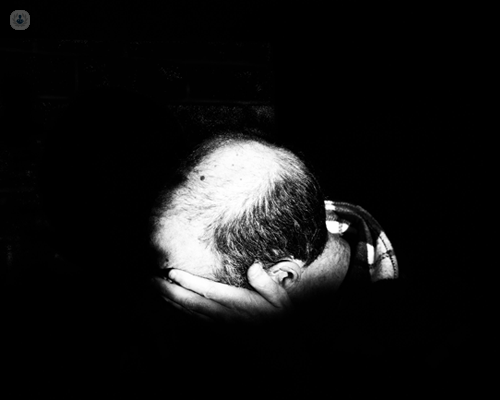Pattern baldness in males and females
Written in association with:Pattern baldness, also known as androgenetic alopecia, is a common form of hair loss that affects both men and women. It is primarily influenced by genetic and hormonal factors and can lead to a progressive thinning of hair. Though it presents similarly in both genders, there are distinct differences in how it manifests and progresses.

What is male pattern baldness?
In men, pattern baldness often follows a well-defined pattern. It typically begins with a receding hairline and thinning at the crown, eventually leading to partial or complete baldness in some cases. The process can start as early as in their 20s or 30s, and it progresses at varying rates. The main factors contributing to male pattern baldness are:
- Genetics: A family history of baldness increases the likelihood of experiencing hair loss.
- Hormones: The male hormone dihydrotestosterone (DHT) plays a significant role by shrinking hair follicles, which leads to hair thinning and eventual loss.
What is female pattern baldness?
Female pattern baldness tends to present differently. Women usually experience more diffuse thinning across the scalp rather than a receding hairline or bald spots. Hair loss in women generally starts later than in men, often becoming noticeable after menopause, and rarely leads to total baldness. Contributing factors include:
- Hormonal changes: Hormonal fluctuations, particularly during menopause, play a key role in female pattern baldness. Reduced levels of oestrogen may contribute to increased sensitivity to androgens (male hormones).
- Genetics: Just as with men, a family history of hair loss increases the likelihood of female pattern baldness.
What are the treatment options for pattern baldness?
While pattern baldness cannot be completely cured, there are several treatments available that can help slow hair loss or even promote regrowth. These include:
- Medications: Minoxidil (available over the counter) can be used by both men and women to stimulate hair growth and slow down thinning. Finasteride is another prescription medication used primarily for male pattern baldness.
- Hair transplants: Surgical options, such as hair transplantation, can provide a permanent solution by moving hair follicles from areas of thicker growth to balding areas.
- Laser therapy: Low-level laser therapy may help stimulate hair follicles and promote hair growth.
What emotional impact and support is available for pattern baldness?
Hair loss, whether in men or women, can significantly affect self-esteem and mental well-being. Addressing these emotional aspects with professional support or counselling is important. Additionally, talking to a healthcare provider about the most suitable treatment options can help regain control and confidence.


